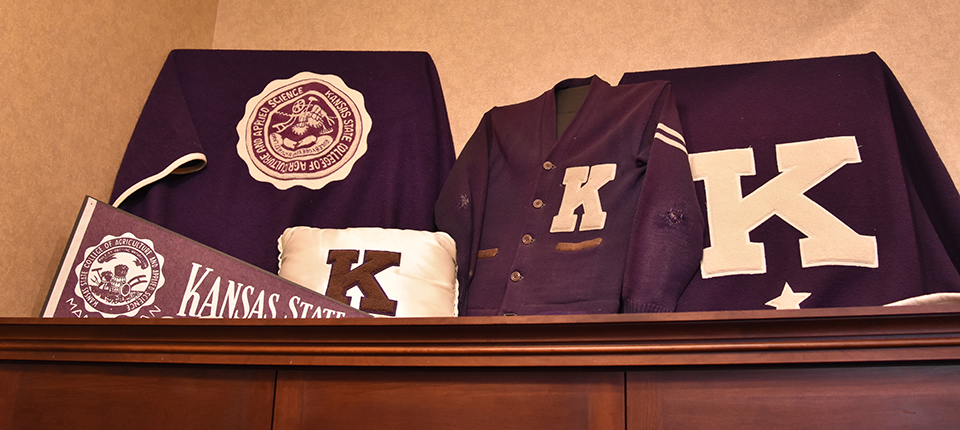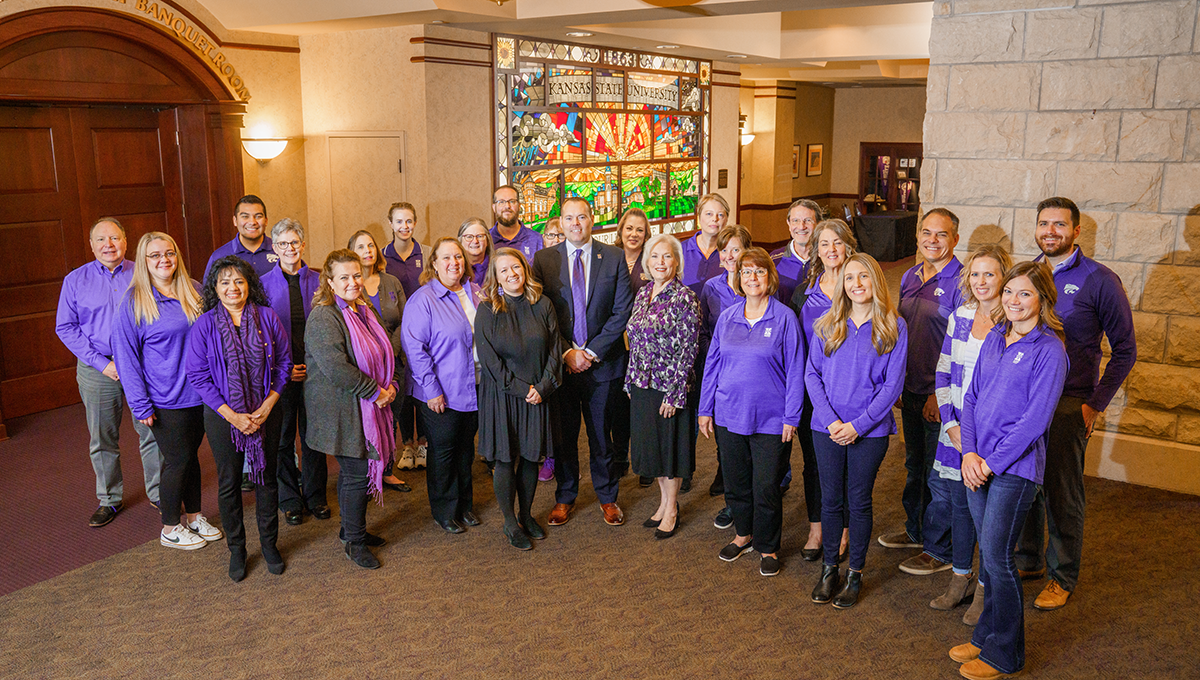About Us
For more than a century, the K-State Alumni Association has been serving Kansas State
University’s alumni, friends, parents, faculty, staff and students who make up the
Wildcat Community. Organized in 1874, the Alumni Association is a self-governed, 501(c)(3),
dues-based organization that is governed by a 29 member board of directors and a professional
staff of 33.
K-State alumni are among the most loyal in the nation and the Association is proud
to rank No. 1 in the Big 12 Conference and No. 4 among the Power Five conferences
nationally for the percentage of graduates who are members. The Alumni Association
is proud to serve the Wildcat Community as their link for life to K-State.
History
During commencement week 1874, Kansas State Agricultural College alumni met in Manhattan's
Presbyterian church against the wishes of then university President John Anderson.
They envisioned what their new society would offer its members — one being a reunion
banquet held every three years after graduation for all new and former graduates of
the college. These triennial reunions were replaced by annual luncheons in 1910, and
then by elaborate evening banquets for alumni, seniors and faculty starting in 1928.
As the number of graduates increased, so did the number of programs the Alumni Association
directed. The group developed membership benefits. One program was sending copies
of the school newspaper, The Industrialist, for one year after graduation and to all continuing active members of the Alumni
Association.
The Alumni Association created formal structures with office space, full-time staff
and elected board members. The staff contacted legislators to explain the needs of
the college and to seek support for higher education, which is still an important
role alumni play today.
By the 1950s, the organization looked more like today's Alumni Association. The K-Stater magazine was first published in 1951. The first Alumni Medallion was presented in
1969, leading the way for many other student, alumni and faculty awards.
The Alumni Association office moved from Anderson Hall in 1970 to Hollis House, sharing
space with the Endowment Association (later known as the Kansas State University Foundation).
About the same time, the Alumni Association launched the Traveling Wildcats program
and established the Tradition Founders fund. By the end of the decade, the Alumni
Association reinvigorated K-State Homecoming traditions and established the Student
Ambassadors program, allowing two elected students to represent the student body at
Alumni Association events throughout Kansas and at university activities.
The 1980s and 1990s also were important years for program development, including Alumni
Fellows, Student Alumni Board, student recruitment, multicultural alumni programs,
a website and the K-State License Plate program. Alumni staff offices also moved to
the KSU Foundation Center on Anderson Avenue.
The dawn of a new millennium saw the launch of the Alumni Association’s e-newsletter,
which now brings K-State news to more than 90,000 Wildcats around the world. Also,
a successful fundraising campaign allowed the Alumni Association to build the K-State
Alumni Center next to Memorial Stadium in 2002. This new building designated a space
for the Memorabilia Room, which allows visitors to take a walk through K-State history
by viewing nostalgic artifacts, vintage clothing and uniforms, university and athletic
photos and much more.
Learn more about K-State memorabilia

The Alumni Center has been a welcoming place for alumni, university and community
events, as well as a stage where the Alumni Association has continued to grow, including
the establishment of the Wildcats Forever student alumni association in 2002 and —
thanks to the success of the K-State License Plate program — the launch of the Legacy
Scholarship program in 2009. The Alumni Association’s reach also extends beyond domestic
borders; there are 98 K-State alumni-related clubs in the U.S., and we have alumni
connections in 15 international locations.
The Alumni Association is ever-changing and yet continues to be the keeper of K-Stater
traditions. It is certain the future will hold more exciting changes and programs
for Wildcats everywhere.


